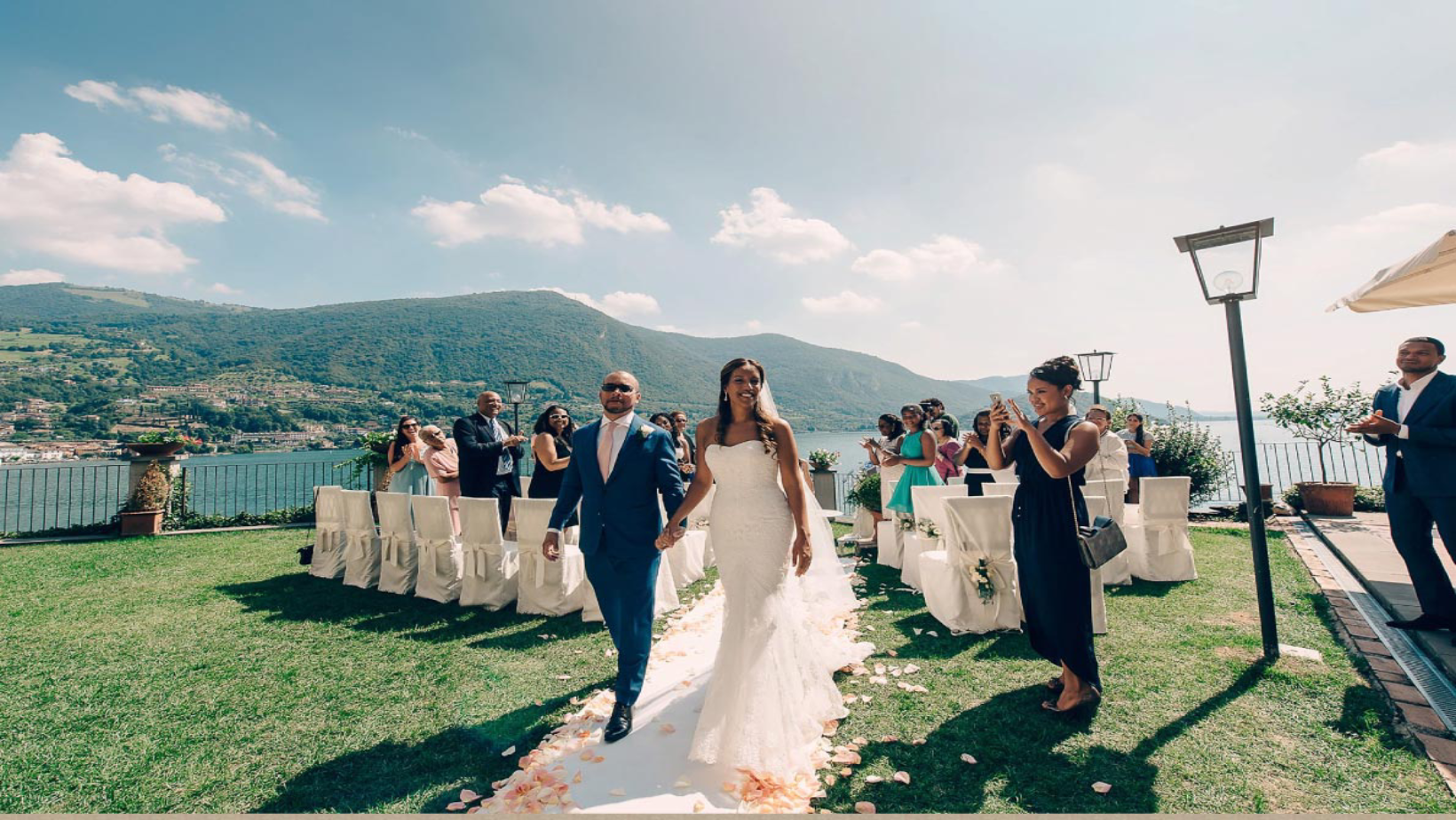
Go Back
Exploring Europe's Diverse Wedding Traditions
Europe is a tapestry of rich cultural heritage, and its wedding traditions are no exception. From the sun-drenched vineyards of Italy to the snow-capped peaks of Scandinavia, each region boasts its unique customs, rituals, and symbolism that have been woven into the fabric of nuptial celebrations for centuries.
Steeped in history, European wedding traditions often reflect the deep-rooted beliefs, superstitions, and folklore passed down through generations. In Greece, for instance, the bride's shoes are traditionally decorated with garlic to ward off evil spirits, while in Scotland, the bride carries a sprig of white heather for good luck.
Beyond the symbolic gestures, the diversity of European wedding ceremonies is a feast for the senses. In Spain, the vibrant flamenco dancers and the rhythmic strumming of guitars add a lively flair to the festivities. In contrast, the solemn grandeur of a Russian Orthodox wedding, with its ornate crowns and intricate rituals, evokes a sense of reverence and tradition.
As modernity embraces the old world, European weddings have evolved to incorporate contemporary elements while preserving their cultural essence. From eco-friendly ceremonies in the rolling hills of Tuscany to intimate elopements in the romantic canals of Venice, couples are finding innovative ways to celebrate their love while honoring their heritage.
Popular European Destinations for Weddings
Europe is a dream destination for couples seeking a romantic and picturesque setting for their wedding celebration. From the sun-drenched beaches of the Mediterranean to the charming villages nestled in rolling hills, the continent offers an array of breathtaking locations that cater to every couple's vision.
Italy: Renowned for its rich cultural heritage, stunning landscapes, and delectable cuisine, Italy is a top choice for destination weddings. The rolling hills of Tuscany, with its vineyards and medieval villages, provide a picture-perfect backdrop for an intimate ceremony. Venice, the city of canals and gondolas, exudes an air of romance and timeless elegance, making it a popular choice for couples seeking a truly unique experience. The Amalfi Coast, with its dramatic cliffs and azure waters, offers a stunning setting for a seaside celebration.
France: From the iconic Eiffel Tower in Paris to the lavender fields of Provence, France is a dream destination for couples seeking a touch of sophistication and elegance. The French Riviera, with its charming coastal towns and luxurious resorts, provides a perfect blend of natural beauty and opulence. Chateau weddings in the countryside offer a fairytale-like ambiance, complete with grand estates, manicured gardens, and historic charm.
Greece: With its stunning islands, ancient ruins, and crystal-clear waters, Greece is a paradise for couples seeking a Mediterranean escape. Santorini, with its whitewashed buildings and breathtaking caldera views, is a popular choice for couples looking to exchange vows against a backdrop of unparalleled beauty. The islands of Mykonos and Crete offer a blend of rich culture, stunning beaches, and vibrant nightlife, making them ideal for couples seeking a lively celebration.
Spain: From the vibrant cities of Barcelona and Madrid to the sun-drenched beaches of the Costa del Sol, Spain offers a diverse range of wedding destinations. The Andalusian region, with its Moorish architecture, flamenco culture, and tapas bars, provides a unique and authentic Spanish experience. The Balearic Islands, including Mallorca and Ibiza, offer a perfect combination of stunning beaches, lively nightlife, and a relaxed Mediterranean atmosphere.
These are just a few of the many incredible destinations Europe has to offer for couples dreaming of a romantic and unforgettable wedding celebration. Each location offers its own unique charm, culture, and natural beauty, ensuring that every couple can find the perfect setting to make their special day truly extraordinary.
Planning a Wedding in Europe
Planning a wedding in Europe can be an exciting and romantic experience, but it also requires careful consideration and preparation. Here are some tips and considerations to keep in mind:
Legal Requirements: Before you start planning, research the legal requirements for getting married in your desired European country. Many countries require a valid passport, birth certificates, and other documentation. Some also have residency requirements or need you to get legally married in your home country first before having a symbolic ceremony abroad.
Location and Venues: Europe offers a wide range of breathtaking locations for a wedding, from historic castles and charming villages to picturesque vineyards and coastal settings. Consider the climate, accessibility, and capacity when choosing your venue. Popular destinations like Italy, France, and Greece tend to be more expensive during peak season.
Cultural Etiquette: Familiarize yourself with the local customs and traditions of your chosen country or region. Certain practices, attire, or behaviors may be considered disrespectful or inappropriate. For example, some churches may have strict dress codes or prohibit certain ceremonies or rituals.
Language Barriers: If you don't speak the local language, consider hiring a wedding planner or coordinator who can communicate effectively with vendors and venues. Alternatively, learn some basic phrases to help with communication during the planning process and on your wedding day.
Vendor Selection: Research and vet local vendors carefully, including caterers, florists, photographers, and entertainment. Language barriers, cultural differences, and unfamiliar customs can lead to misunderstandings, so clear communication is essential.
Travel and Accommodation: Plan for your guests to have ample time to arrange travel and accommodation. Provide recommendations for hotels or vacation rentals near the wedding venue. Consider offering group rates or room blocks for your wedding party and close family members.
Legal Paperwork: Understand the legal requirements for getting married in your chosen country, such as obtaining a marriage license, hiring a local officiant, and providing necessary documents. Some countries may require translations or apostille certifications for certain documents.
Insurance and Emergency Planning: Purchase travel insurance and consider wedding insurance to protect against unforeseen circumstances. Have a contingency plan in case of emergencies, such as inclement weather or vendor cancellations.
Cultural Experiences: Incorporate local traditions, customs, or activities into your wedding celebrations to create a truly immersive and memorable experience for you and your guests. This could include traditional cuisine, music, or dance performances.
Remember, planning a wedding in Europe requires patience, flexibility, and a willingness to embrace the local culture. With proper preparation and an open mind, you can create a truly unforgettable and unique wedding experience.


Let’s Start Planning!
Call Us:
+91 7204011136Email Us:
enquiry@kairosevents.co.in
Copyright ©2024 Kairos All Rights Reserved
